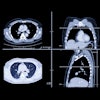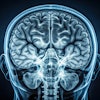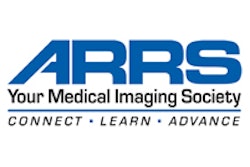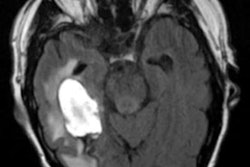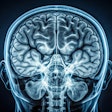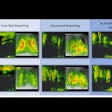Dear Artificial Intelligence Insider,
A busy spring conference season in radiology has included no shortage of artificial intelligence (AI) content to take in. For example, at this week's virtual annual meeting of the American Roentgen Ray Society (ARRS), researchers from Sunnybrook Health Sciences Centre in Toronto reported that AI algorithms can identify triple-negative and human epidermal growth factor receptor 2-positive breast cancer subtypes on standard grayscale ultrasound exams.
Learn in this issue's Insider Exclusive how their machine-learning models may enable faster and more appropriate treatment for these highly aggressive cancer subtypes.
In other coverage from ARRS, an AI algorithm was deemed to be a valuable decision-support tool in breast ultrasound, improving the diagnostic accuracy of both radiologists and trainees. In addition to detecting metastatic lung nodules on chest CT exams in breast cancer patients, another deep-learning model can also help predict disease progression and mortality.
Those who attended the Society of Breast Imaging/American College of Radiology Breast Imaging Symposium also had plenty of AI talks to choose from. For example, a team from Massachusetts General Hospital found that risk scores produced by a deep-learning model based on analysis of mammograms may offer better insight into a woman's risk of breast cancer over the next two years than traditional risk factors such as age or mammographic breast density level.
Be sure to stop by the Artificial Intelligence Community in the coming weeks for coverage of these and other imaging conferences.
Also, a newly published study from the American College of Radiology Data Science Institute brought renewed attention to some of the thorny challenges hindering broad adoption of radiology AI. These hurdles include reimbursement issues, a topic discussed in a new column by Sandy Coffta of Healthcare Administrative Partners.
There are also some lingering concerns over performance and generalizability, as demonstrated by a recent study that detailed lower-than-expected sensitivity and positive predictive value from an intracranial hemorrhage detection algorithm after it was placed into clinical use. In addition, an international survey of more than 1,000 radiologists and radiology residents revealed divergent opinions on AI, with nearly 40% fearing being replaced by the technology.
A recent meta-analysis of radiology AI research is the latest to warn of widespread methodological and reporting issues that make it challenging to assess clinical utility. But there was also some good news.
Meanwhile, an AI algorithm shows promise for aiding the triage of potentially abnormal brain MRI exams. Also, a convolutional neural network designed to read dual-energy x-ray absorptiometry exams may help predict cardiovascular disease.
In regulatory developments, the Biden administration has withdrawn a proposal put forward in the waning days of the Trump administration to eliminate U.S. Food and Drug Administration 510(k) reviews for a range of medical products, including AI software.
AI algorithms can also predict the severity and progression of chronic obstructive pulmonary disease, differentiate sclerotic bone lesions on abdominal CT, shed light on COVID-19 progression, assess biological age on chest radiographs, and help detect physical child abuse.
Is there a story you'd like to see covered in the Artificial Intelligence Community? Please feel free to drop me a line.



